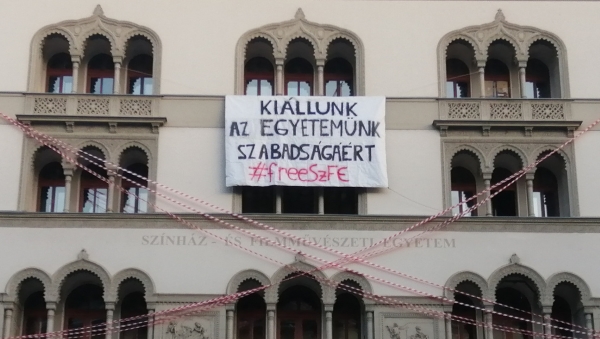According to the proposed amendment:
- the state shall be obliged to protect the constitutional identity of Hungary – a supplement to both the National Avowal and Article R) on the self-definition and interpretative framework of the Fundamental Law;
- the EU’s exercise of power shall “comply with the fundamental rights and freedoms provided for in the Fundamental Law and shall not limit Hungary’s inalienable sovereignty over its territorial integrity, population, form of government and state structure” – a supplement to article E) on Hungary’s membership in the EU.
All in all, with the seventh amendment to the Fundamental Law the EU’s exercise of powers could have been restricted by reference to (a) the fundamental rights and freedoms enshrined in the FL (b) Hungary’s inalienable sovereignty over its territorial integrity, population, form of government and state structure and (c) the obligation to protect the constitutional identity of the country, rooted in its historical constitution.
On 8 November the Parliament voted against the amendment, thereby depriving the government of every legal basis to pursue its anti-refugee politics – a second blow after the invalid referendum.
However, the Constitutional Court, which is filled up with judges loyal to the ruling party, seems to lend a hand to the government in the fiasco. On 30 November 2016 the Court made a decision on a motion of the ombudsman that was submitted to the Court back in December 2015. The motion was related to the EU quota decision, based on which 1294 asylum seekers would be located from Greece and Italy to Hungary and the Hungarian authorities would be obliged to process their asylum application. In his motion the ombudsman asked the Court whether in view of the Fundamental Law, particularly its provision on the EU (article E), the Hungarian authorities were explicitly obliged to refuse to take part in the implementation of the EU quota decision.
In its decision of 30 November the Court ruled that the Court itself can examine whether the EU’s exercise of power violates (a) human dignity or any other fundamental right, (b) Hungary’s sovereignty, or (c) Hungary’s constitutional identity rooted in its historical constitution.
In an earlier analysis EKINT pointed out that the constitution can be interpreted in a way that the constitutional restrictions, like the restrictions on the exercise of state power, shall be considered guiding in cases of the exercise of EU power as well. Theoretically, the Constitutional Court can give effect to the fundamental constitutional restrictions, constitutional identity and the restrictions included in Article E against the power of the EU. At the same time EKINT pointed out that the Court had never made use of the possibility in practice.
In its present decision the Court pretends that it has never had the possibility of reviewing the constitutionality of EU acts – it does not say a word about its earlier decisions in EU related cases. Since the Constitutional Court decisions can be considered legitimate only if their reasoning is verifiable and consistent, the Court should have made it clear how its new decision relates to its earlier aloof approach.
The suddenly reached decision makes one wonder whether the Constitutional Court is not over-enthusiastic in helping the government’s ideals come true by making up for the failed seventh amendment.
1 December 2016
Eötvös Károly Policy Institute






